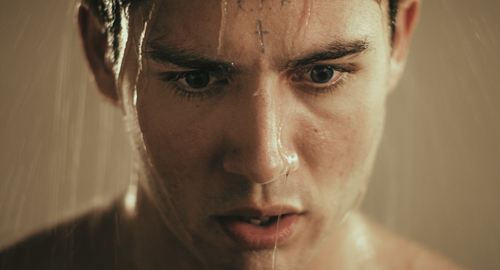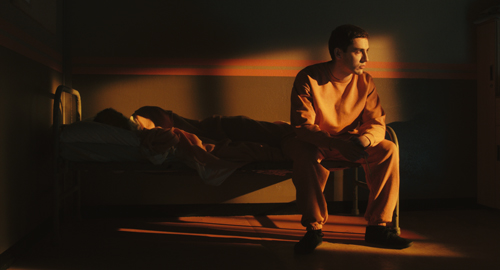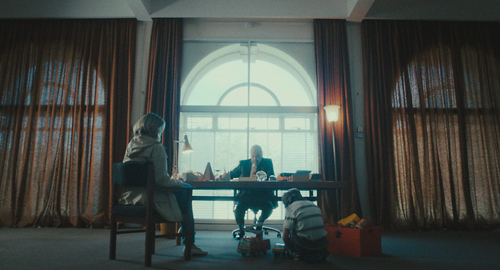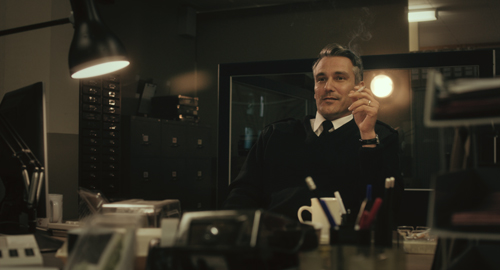Splice grades Best British Feature nominee at upcoming Edinburgh International Film Festival awards
We Are Monster, a feature film written and produced by Terra Rossa Films Entertainment and graded on Baselight by Splice, has been nominated for the Michael Powell award for Best British Feature Film at the Edinburgh International Film Festival in June (18–29 June 2014).

We Are Monster
Based on a true story, We Are Monster follows Robert Stewart, a known racist, who was placed in a cell at Feltham Young Offenders Institute on the 8th February 2000 with Zahid Mubarek, a young Asian man convicted for petty theft. Six weeks later Stewart murdered him.
Splice, one of London’s leading creative post-production facilities based in the heart of Shoreditch, was involved in the whole process from pre-shoot to delivery. It completed the full post-production of the 90-minute feature film, including the grade, online, visual effects and deliverables.
Prior to the shoot at Twickenham Studios, Splice held a consultation on digital 2K Log-C workflows using the ARRI ALEXA, and partnered up with Outpost VFX to provide VFX solutions on-set. Working on a Baselight colour grading system from FilmLight, colourist Chris Rodgers was responsible for grading the ‘Monster’ and producing the deliverables.
Director Antony Petrou worked closely with Rodgers on the desired look for the film and was particularly keen to avoid a de-saturated ‘gritty’ feel, instead looking to enhance the oranges and greens that were present on set.

We Are Monster
“I conformed a multi-track timeline via AAF in Baselight using the original 3K ARRI RAW files. This was completed directly in Baselight so we were always working from the raw material rather than transcodes,” explained Rodgers. “After an initial pass with DoP Simon Richards, we further developed the look and added shapes to lift and knock back certain areas of the image.
“Almost every shot featured some kind of shape to isolate faces or eyes,” he added, “and Baselight’s Area Tracker was invaluable for this.”
The film features a number of flashbacks and Rodgers wanted to distinguish them from the rest of the film. After experimenting with a few different ways to achieve this, he settled with a low contrast print emulation that avoided primary colours. On top of this Rodgers used Baselight to ‘dirty-up’ the image with a combination of blur, sharpening and film grain.

We Are Monster
“Although the more complex VFX work was handled in The Foundry’s NUKE and Avid DS, I was surprised at how much was possible in Baselight,” added Rodgers. “In one shot, we composited a series of plates to remove a row of doors from a corridor and create a location that never actually existed. In another, we cloned and tracked areas of shots to remove part of a tattoo, not to mention the stabilising and camera moves that were added. It was great to be able to deal with these things without farming them out to VFX.”

We Are Monster
The main deliverable was 2K DCP, and Splice did the P3 to XYZ conversion straight from Baselight as well as a Rec 709 HDCAM SR 444 master.
“The generalised colour spaces in Baselight 4.4 saved valuable time because there was no need for a trim pass,” Rodgers said. “And, of course, they guaranteed the most accurate results.”



